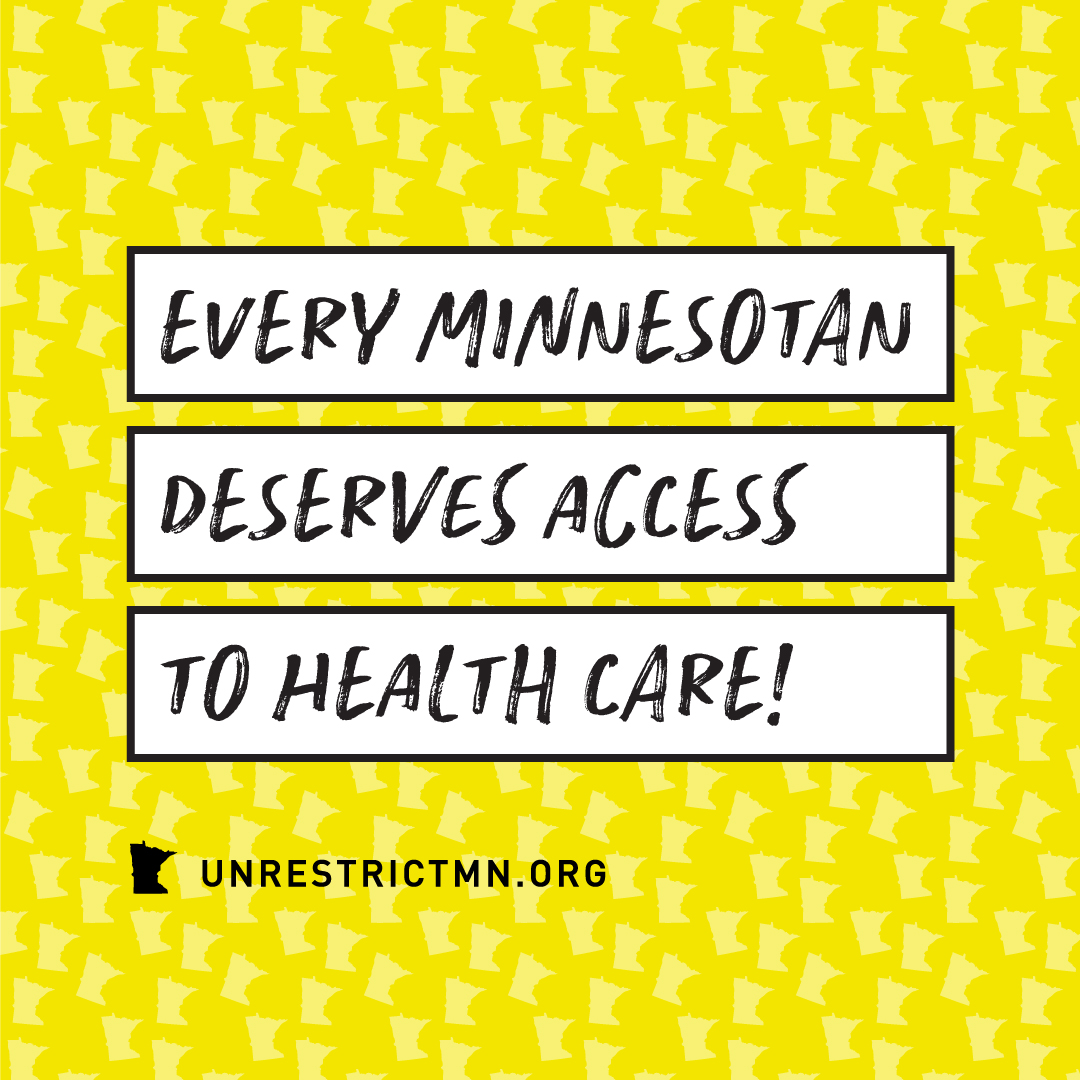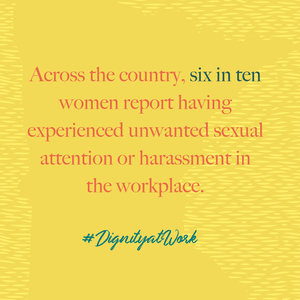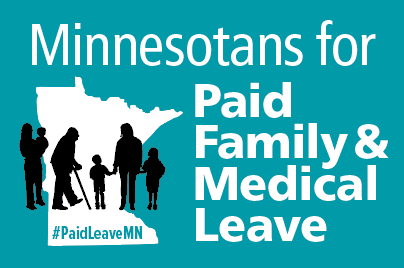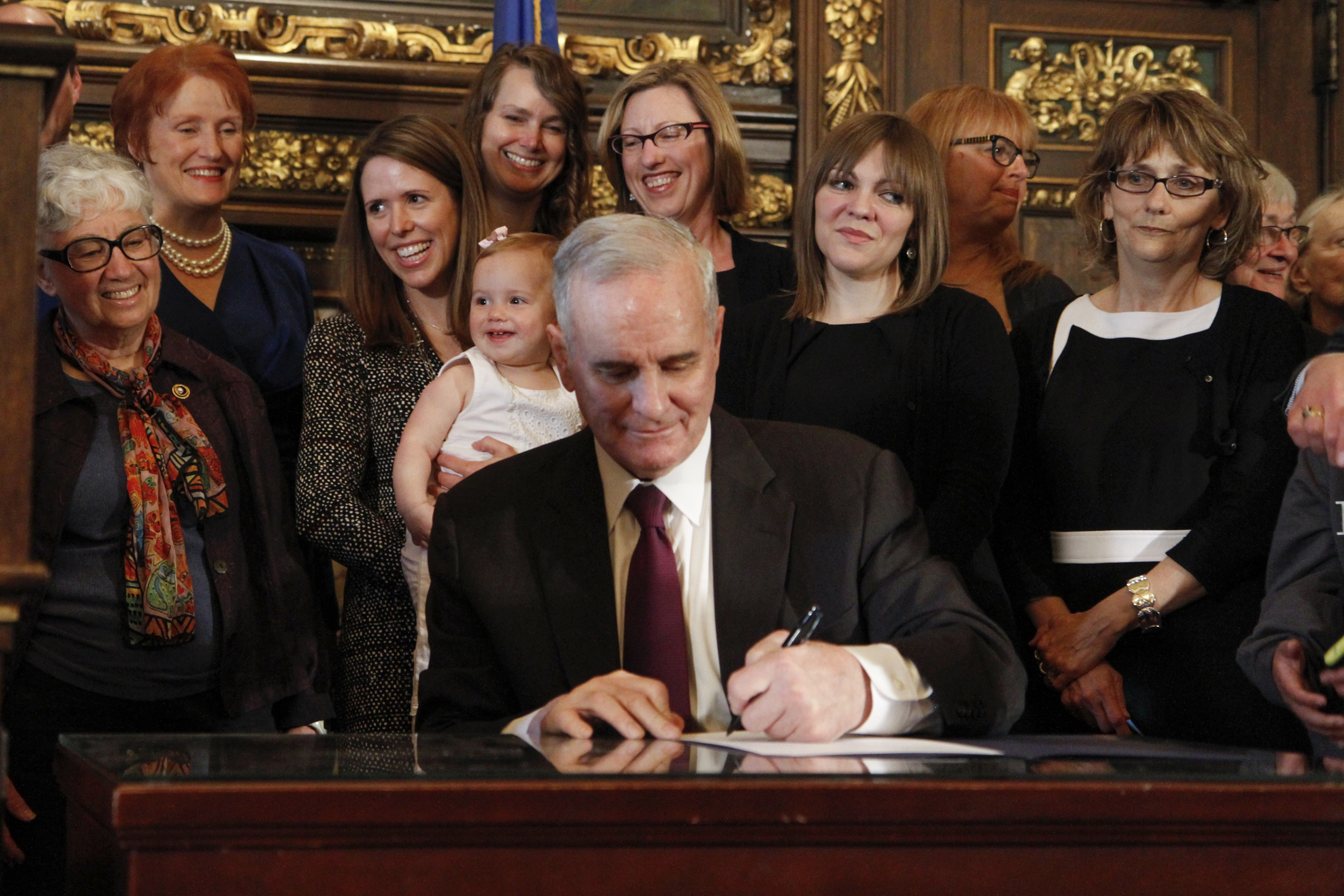
Women’s Economic Security Act
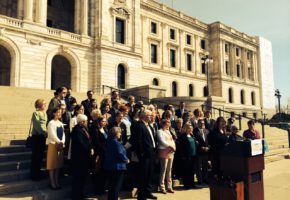
Piece by piece, bit by bit, Minnesota organizations including Gender Justice have been chipping away at this issue for decades. Then, in early 2014, Minnesota State House Speaker Paul Thissen said the magic words many had been waiting to hear: The upcoming legislative session would include a package of laws to move Minnesota to the forefront on economic justice for women.
It was like a starter gun had gone off. Gender Justice saw an opportunity to make real change in Minnesota and helped found a coalition to compile decades of research and recommendations into a package of bills encompassing equal pay, family leave, childcare, domestic violence, and more.
Our staff drafted laws, rallied supporters, testified in committee hearings, and spent countless hours at the capitol countering the many false claims made by lobbyists defending of the status quo. In a diverse and hardworking coalition, we played a unique role: As lawyers we were able to tell legislators exactly how their laws would work in practice in the real world.
We were also able to connect legislators to the very people who would be most affected by the new laws. Tara Duncan, a Gender Justice client, was fired for pumping breast milk at her job in Lake City, Minnesota. Because we settled her case without a gag order, Tara was able to tell her story at the Women’s Economic Security Summit before the start of the session and inspire legislators to introduce a bill to fix the missing enforcement mechanism that nearly let her boss off the hook.
Early in the legislative session, President Barack Obama took notice of Minnesota’s efforts in a speech in St. Paul and said, “Minnesota is helping to lead the way on these issues… There are leaders in your state legislature that are working hard at this, because they know when women succeed, America succeeds.”
The Women’s Economic Security Act initially included bills to:
-
extend pay equity law to cover state contractors
-
raise the minimum wage
-
expand access to high-quality, affordable childcare
-
expand family and sick leave for working families
-
require employers to accommodate pregnant and nursing workers
-
enhance protections for victims of violence
-
encourage women to pursue nontraditional, high-wage jobs
-
help women-owned small businesses succeed
-
help older women be economically secure
LEARN MORE
Read about the Pregnancy Leave Act
News Updates
NURSING RIGHTS FOR NEW PARENTS
While it was illegal for employers to discriminate against pregnant women in the workplace, prior to the passage of WESA, there were no consequences for these violations in the law. Thanks to WESA, Gender Justice was able to bring a suit on behalf of client Rachel Pierce, who was suffered considerably after being denied adequate accommodations for pumping while at work. Read Rachel's Story

You Can Help.
Donate
With your financial support, Gender Justice can continue to fight hard for our clients and push the laws forward in our legislature. Be there with us as we work to bring about big, systemic change. Give today.

